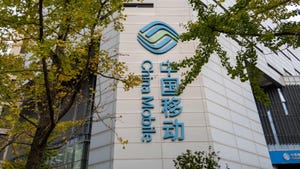Philippines to cut 62M mobile subscriptions after registration drive
A six-month national campaign in the Philippines managed to register fewer than two-thirds of active mobile subscribers, leaving millions to lose their service.

Around 62 million Philippines mobile services face disconnection after failing to register their personal details by the July 25 deadline. The national SIM registration drive, which was extended for three months in April, has signed up 105.9 million subscribers, or just 63% of the total mobile user base.
The National Telecommunications Commission (NTC) has said the total was within its expectation of 100 to 110 million sign-ups.
It is not clear why such a large number of SIMs remain unregistered and the NTC has not issued an explanation. A proportion are certain to be duplicate or redundant cards, and some government officials have suggested that many of unregistered SIMs are already being used for fraud.
There is also a big gap between the three mobile operators. Smart, a unit of PLDT, had registered 49.99 million by the July 25 deadline, or 75% of its total. Globe reported 48.4 million (56%), while Dito Telecom reported 7.5 million signups (50%).
The operators certainly made efforts to accelerate the process, with Globe and Dito both offering free data for new signups. But the low response rate may also confirm the fears of critics who have warned that users in rural areas and using feature phones, or lacking ID credentials, would be unable to register.
Black market
The head of farmers' organization KMP, appealing for an extension in April, said millions of farmers and fishermen had yet to register. "The threat of them losing their access to their SIM and other social media is a direct attack on their right to be heard, be informed and communicate," said KMP chairperson Danilo Ramos.
The Department of Information and Communications Technology (DICT) has resisted calls for an extension of the deadline beyond July.
JC Punongbayan, an assistant professor at the University of the Philippines School of Economics, warned that the system might end up creating a black market in faked or stolen SIMs. He cited the arrest of two men and the confiscation of 100 fake SIM cards in April and of the emergence of SIM registration syndicates in Malaysia.
The DICT has said it will progressively disconnect unregistered users from networks over the coming months.
The Philippines is not the only place in Asia that has struggled to register SIMs. Hong Kong has also completed an 18-month "real-name" registration program in February this year – part of the intensive security crackdown in the wake of the anti-government protests in 2019.
According to regulator Ofca, 12 million cards had been registered by the cut-off date, but it would not say how many had failed to register. Ofca's own stats show the city had 9.6 million postpaid and 7.7 million prepaid SIMs in operation in March, suggesting that just 69% of Hong Kong SIM card owners responded – just a few points higher than in the Philippines.
Related posts:
— Robert Clark, Contributing Editor, special to Light Reading
Read more about:
AsiaAbout the Author(s)
You May Also Like












